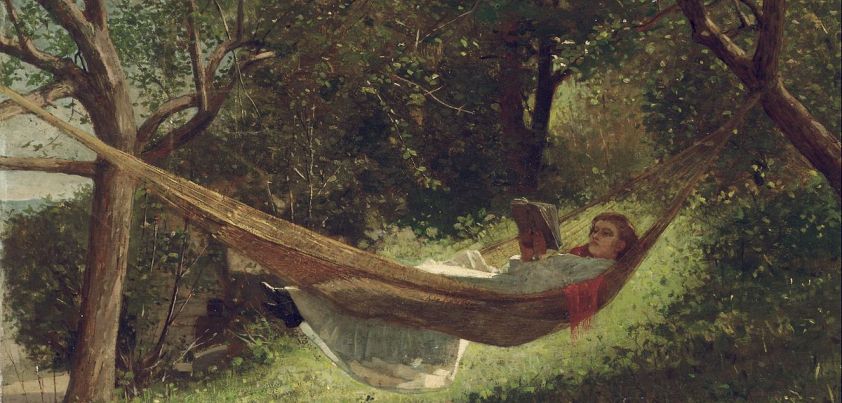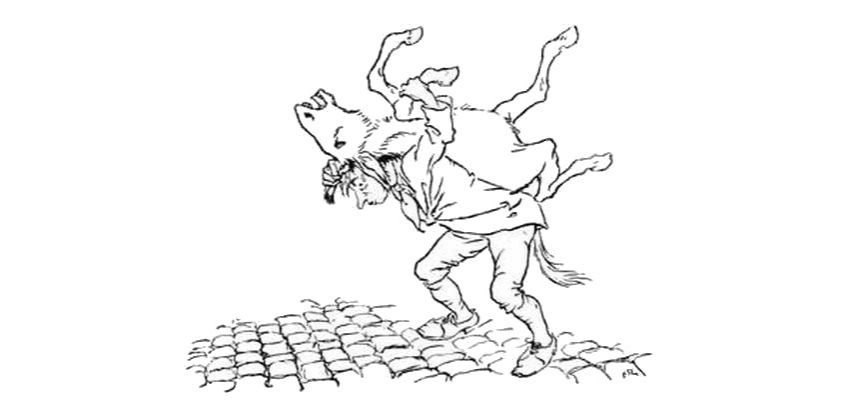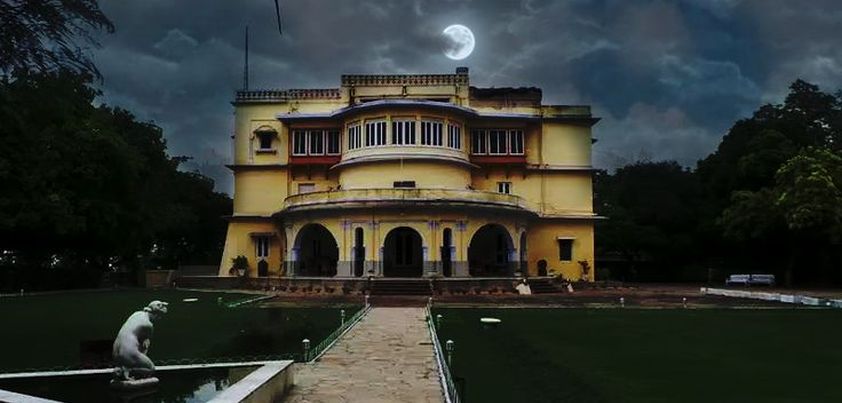 This is a short horror story by little known author Julius Long. A doctor tells a man suffering from nerves to have a long holiday somewhere quiet. The man checks into a hotel in a small town. However, the townspeople are unfriendly towards him and he finds it a lonely, dreary place. His only hope for stimulating conversation appears to be a tall, pale man staying in another room of the hotel. The pale man has some very strange ways, so the man asks the hotel room clerk about him. The room clerk tells him there is no such guest. More…
This is a short horror story by little known author Julius Long. A doctor tells a man suffering from nerves to have a long holiday somewhere quiet. The man checks into a hotel in a small town. However, the townspeople are unfriendly towards him and he finds it a lonely, dreary place. His only hope for stimulating conversation appears to be a tall, pale man staying in another room of the hotel. The pale man has some very strange ways, so the man asks the hotel room clerk about him. The room clerk tells him there is no such guest. More…
All posts by shortsonline
Marjorie Daw
 The major theme of this story by Thomas Aldrich is how well-intentioned deception can lead to unexpected results. A wealthy, self-absorbed young man has difficulty adjusting to being confined to a sofa with a broken leg. His doctor asks the man’s best friend, who is holidaying near the sea with his sick father, to write frequently in order to “distract and cheer him up”. The friend complies, beginning with an innocent white lie about the beautiful girl living across the road. Unfortunately, as is often the case, one lie leads to another and soon the distraction grows into an obsession. More…
The major theme of this story by Thomas Aldrich is how well-intentioned deception can lead to unexpected results. A wealthy, self-absorbed young man has difficulty adjusting to being confined to a sofa with a broken leg. His doctor asks the man’s best friend, who is holidaying near the sea with his sick father, to write frequently in order to “distract and cheer him up”. The friend complies, beginning with an innocent white lie about the beautiful girl living across the road. Unfortunately, as is often the case, one lie leads to another and soon the distraction grows into an obsession. More…
Lazy Jack
 This English folktale is about a boy who isn’t very bright and doesn’t like the idea of work. However, thanks to following the advice of his mother, he marries a rich girl and, one imagines, never has to work again. Possible morals? For children: Always do what your parents tell you and you’ll have a good life. For parents: Teach your children the value of hard work so they can take care of you in your old age. For the rich girl: Sometimes laughter is the best medicine. For the rich girl’s father: Be careful of what you wish for! More…
This English folktale is about a boy who isn’t very bright and doesn’t like the idea of work. However, thanks to following the advice of his mother, he marries a rich girl and, one imagines, never has to work again. Possible morals? For children: Always do what your parents tell you and you’ll have a good life. For parents: Teach your children the value of hard work so they can take care of you in your old age. For the rich girl: Sometimes laughter is the best medicine. For the rich girl’s father: Be careful of what you wish for! More…
When Darkness Falls
 One of Ruskin Bond’s strengths is his ability to portray characters that are so life-like readers can empathize with them. So it is with this tragic story of man so frightfully disfigured by war that he is afraid to leave his room by day, and confines himself to creeping phantom-like around an aging hotel by night. His loves in life are his books and music. The message of the story: before turning away from a grossly disfigured or disabled person, stop to consider the feelings of the human being within. Themes include appearance, fear, despair, the healing power of music. More…
One of Ruskin Bond’s strengths is his ability to portray characters that are so life-like readers can empathize with them. So it is with this tragic story of man so frightfully disfigured by war that he is afraid to leave his room by day, and confines himself to creeping phantom-like around an aging hotel by night. His loves in life are his books and music. The message of the story: before turning away from a grossly disfigured or disabled person, stop to consider the feelings of the human being within. Themes include appearance, fear, despair, the healing power of music. More…
The Night of the Ugly Ones
 This story by Mario Benedetti examines the concept of “ugliness” and the feelings of exclusion experienced by people with physical deformities when others turn away or pretend not to notice them. A man and woman, both with significant facial blemishes, meet at a movie and connect over coffee. (You’d like a face as smooth as that young girl’s on your right, even though you’re intelligent and she, judging by her laugh, is a hopeless idiot.) Their lovemaking later that night takes a curious turn, with both ending up in tears. Themes include isolation and loneliness, humanity, internal vs. external beauty. More…
This story by Mario Benedetti examines the concept of “ugliness” and the feelings of exclusion experienced by people with physical deformities when others turn away or pretend not to notice them. A man and woman, both with significant facial blemishes, meet at a movie and connect over coffee. (You’d like a face as smooth as that young girl’s on your right, even though you’re intelligent and she, judging by her laugh, is a hopeless idiot.) Their lovemaking later that night takes a curious turn, with both ending up in tears. Themes include isolation and loneliness, humanity, internal vs. external beauty. More…